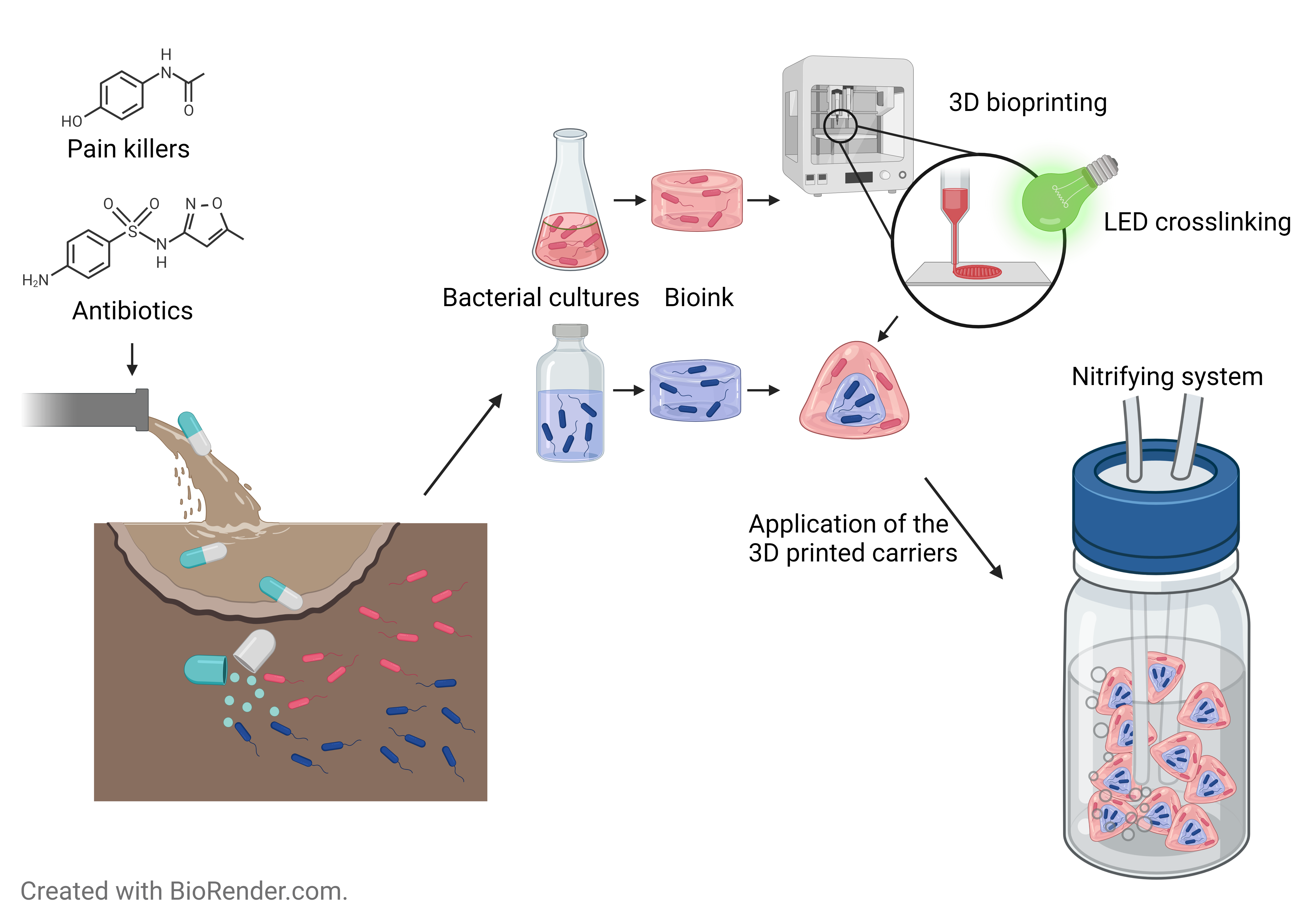During manned space flight, pharmaceuticals can end up in the human waste, predominantly in the urine. This can contaminate recycled H2O and nutrients, affect microbial processes involved in the recycling, even exposing astronauts constantly to them. Constantly treating the water with oxidants to remove all possible contaminants requires considerable oxidant input. Bacteria have the extraordinary capacity to adapt to man-made chemicals such as pharmaceuticals (e.g., pain killers and antibiotics) and eventually degrade them in CO2 and H2O as well as recycle metabolites. New developments in additive manufacturing have shown that 3D-printed bacterial biofilms can be used to assemble synthetic consortia, which lead to the ultimate biodegradation of xenobiotics. 3D carriers could be printed with tailored bacterial consortia and introduced in a nitrification step or separately. The bio-based solution reduces the energy and chemical needs for the removal of pharmaceuticals, tailor-made biofilms will be designed to tackle the problem at the source, i.e., in stabilized urine where the concentration of pharmaceuticals is per se high. Embedding the technology in the value chain of nitrogen has 2 advantages. First, it will help in detoxifying the streams, which is processed by sensitive nitrifiers. Second, it will capitalize on co-metabolic reactions occurring in the nitrification process, which result in the chemical activation of recalcitrant pharmaceuticals becoming more amenable for biodegradation by the 3D-printed biofilms. By combining the 3D carriers with nitrification, no additional reactors nor energy are needed and downstream post-treatment is minimized. The mid-term vision is the automatized formulation and printing of biofilms starting from microbial lyophilizates and bioink components requiring minimal space using a light-weight 3D-printer for spatial missions. Needed would be a microbial culture storage, a robot to select strains and the 3D printer

